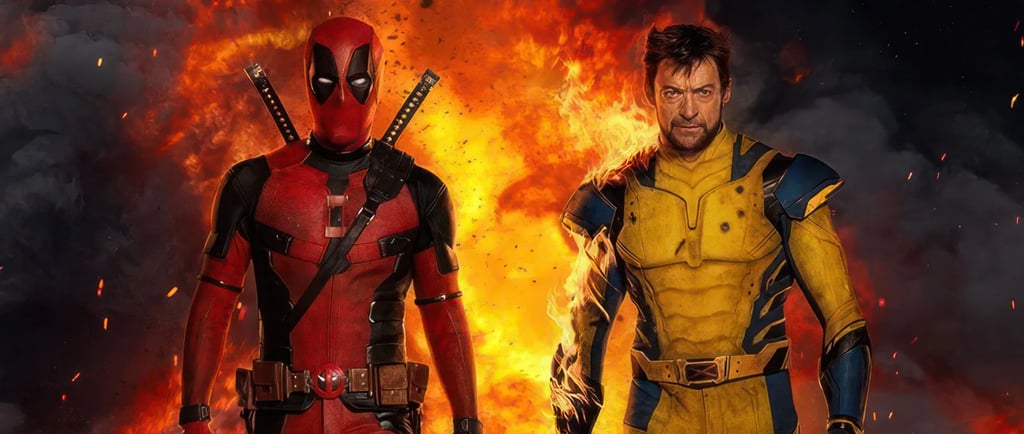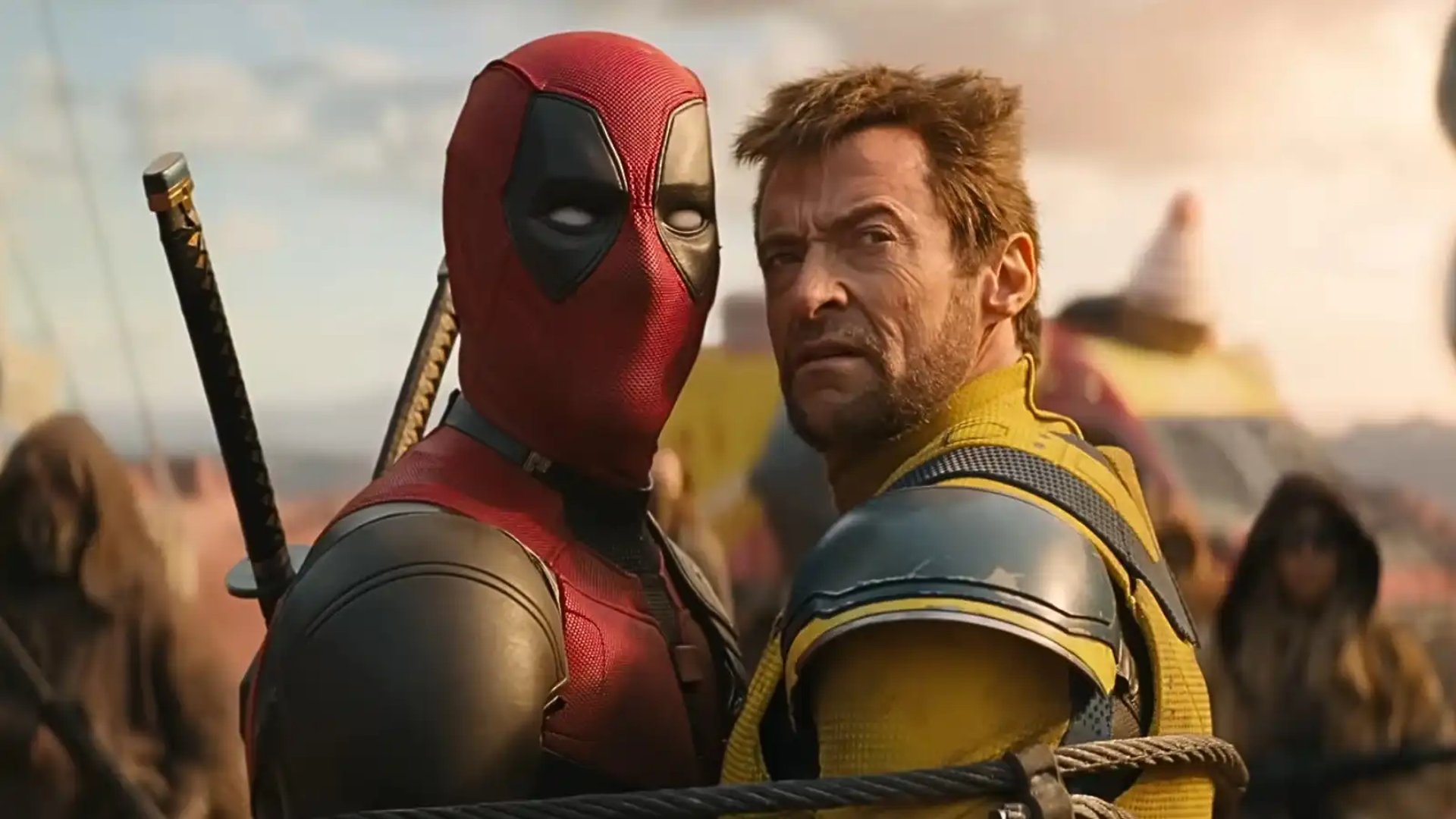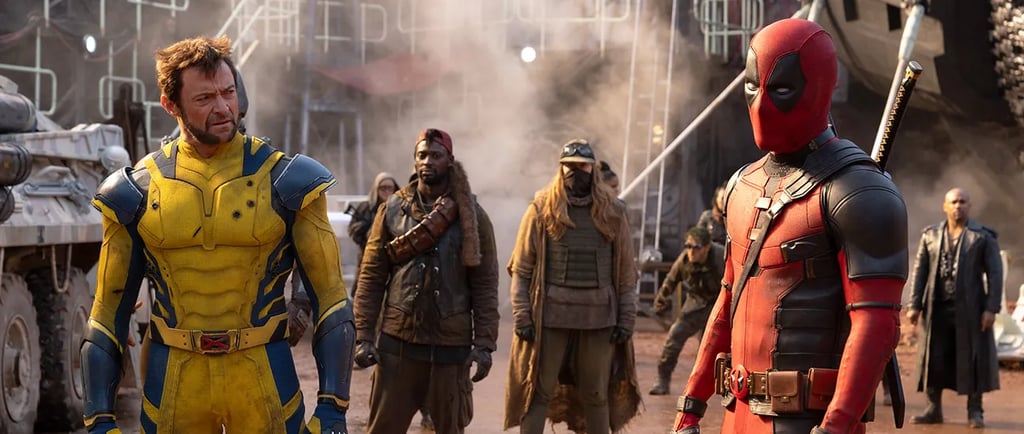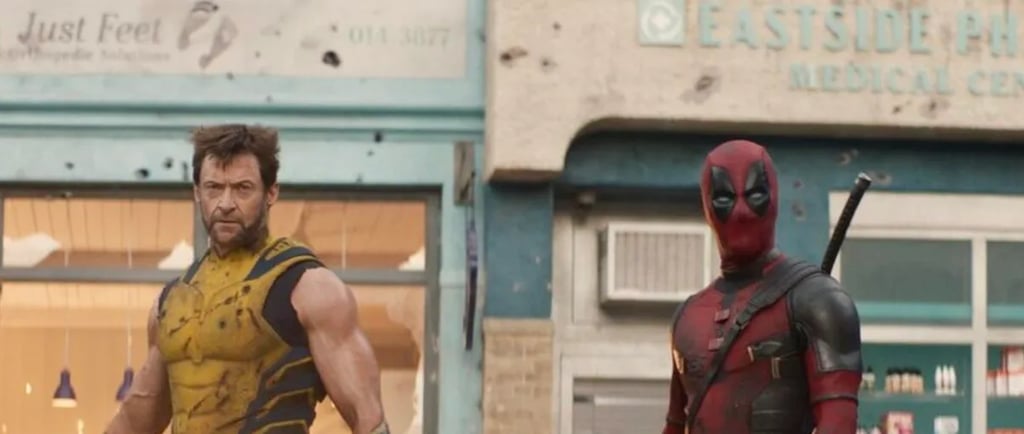Genre Remix; Deadpool & Wolverine: The Romantic Comedy Nobody Asked For But Everyone Needed
movie review
PROJECT 2
4/8/20254 min read

Welcome to a film review blog so self-aware, Deadpool would probably sue me for copyright infringement… or sell me mint mobile. Honestly, it could go either way. We're diving headfirst (and then some limbs) into Deadpool & Wolverine, the mutant buddy comedy you never knew you needed but now can’t emotionally detach from.
It’s not just a movie, it’s a flipping dagger to every cliche superhero you've ever pretended to care about. This isn’t just a blog review, it’s a satire dripping dissection. Think Deadpool with a PhD in Media Studies and Wolverine growling in the background because I dared to use the word “dissection.”


Deadpool & Wolverine is what happens when you give a psychotic Joker a script, a camera, and access to Ryan Reynolds’ bank account. It's bloody. It's brilliant. And it's basically a doctoral thesis in how to turn ultraviolence into a laugh track.
But here’s the thing, the film isn’t just cracking jokes while cracking skulls. According to the research (yeah, we’re getting all “cited sources” on you now), humor in Deadpool isn’t fluff, it’s a full-blown narrative weapon. It softens the gore, blurs the lines between hero and antihero, and turns the fourth wall into a revolving door.

The Psychology of Bloody LOL
In 1970, Berkowitz warned us that aggressive humor increases audience aggression. Fast-forward to 2024, and Deadpool & Wolverine takes that idea, dips it in sarcasm, and lights it on fire.
What you’re really watching isn’t a movie—it’s a psych experiment with swords. Deadpool massacres goons while talking about chimichangas. You laugh. Why? Because humor masks violence. It's camouflage. This is Potter and Warren’s theory in action. They're probably screaming somewhere that Deadpool is proving them terrifyingly right.
Morally Grey? Deadpool's Morality is Totally Up in the Air
Traditional superheroes are boring. Truth, justice, blah blah blah. Deadpool? His moral compass is like a fidget spinner—fast, unpredictable, and kind of pointless. This film—and the original Deadpool—embraces ambiguity like a cuddle-hungry raccoon with a grenade. Deadpool mocks Logan’s “tortured samurai” persona so hard it almost makes you forget both of them are racking up body counts higher than your student loan debt. They’re heroes, but only if you squint hard enough and ignore the blood on the lens.


Fourth-Wall Fractals and Meta Mayhem
Deadpool makes Ferris Bueller look subtle. The fourth wall isn’t broken, it’s totally pulverized with a unicorn horn. Jokes about the studio budget? Check. Cracks about the multiverse being a lazy plot device? Checkmate, MCU haha.
This is what the research calls “meta-humor”, where the film knows it’s a film. And instead of pulling you out, it shoves you deeper into the insanity. You’re not watching Deadpool. You’re in league with him. You are his accomplice in cinematic crime.


Final Thoughts: Where’s the Line Between Genius and Madness?
Deadpool & Wolverine isn't a movie. It’s a violent TED Talk on genre deconstruction and moral chaos, hosted by a crazed meta hero in red leather and his reluctant, hairy BFF.
It's also a love story, a satire, a therapy session, and an R-rated cartoon for adults who never quite recovered from their MCU Phase 1 phase. This movie doesn’t just make fun of superhero cinema. It scalps it. It dances on its grave. And then it asks if you'd like to buy the Blu-ray.


Works Cited (a.k.a. The Nerd Stuff That Makes This Legit (ish) )
Academic & Theoretical Sources:
Baltag, V. (2021). Humour in film as a method of expression. Galaktika Media: Žurnal Media Issledovanij, 3(3), 98–109. https://doi.org/10.46539/gmd.v3i3.205
Berkowitz, L. (1970). Aggressive humor as a stimulus to aggressive responses. Journal of Personality and Social Psychology, 16(4), 710–717. https://doi.org/10.1037/h0030077
Díaz Cuesta, J. (2018). Representations of masculinities in John Michael McDonagh’s satirical film text The Guard. Estudios Irlandeses, 132(132), 60–76. https://doi.org/10.24162/EI2018-8618
Iaccino, J. F. (2017). A new take on the superhero genre with a multi-dimensional trickster figure. PsycCritiques, 62(40). https://doi.org/10.1037/a0041028
King, C. M. (2000). Effects of humorous heroes and villains in violent action films. Journal of Communication, 50(1), 5–24. https://doi.org/10.1111/j.1460-2466.2000.tb02831.x
Potter, W. J., & Warren, R. (1998). Humor as camouflage of televised violence. Journal of Communication, 48(2), 40–57. https://doi.org/10.1111/j.1460-2466.1998.tb02747.x
Films Referenced:
Reynolds, R. (Producer), & Miller, T. (Director). (2016). Deadpool [Film]. 20th Century Fox.
Reynolds, R. (Producer), & Levy, S. (Director). (2024). Deadpool & Wolverine [Film]. Marvel Studios.
Primary Source Material:
Research Paper 2 (2025). Qualitative analysis of humor, violence, and meta-narrative in Deadpool and Deadpool & Wolverine. [Unpublished manuscript provided by user].
Insights
Explore the website to gain insights into what was learned.
Resources
contact@edufuturetrends.com
© 2024. All rights reserved.